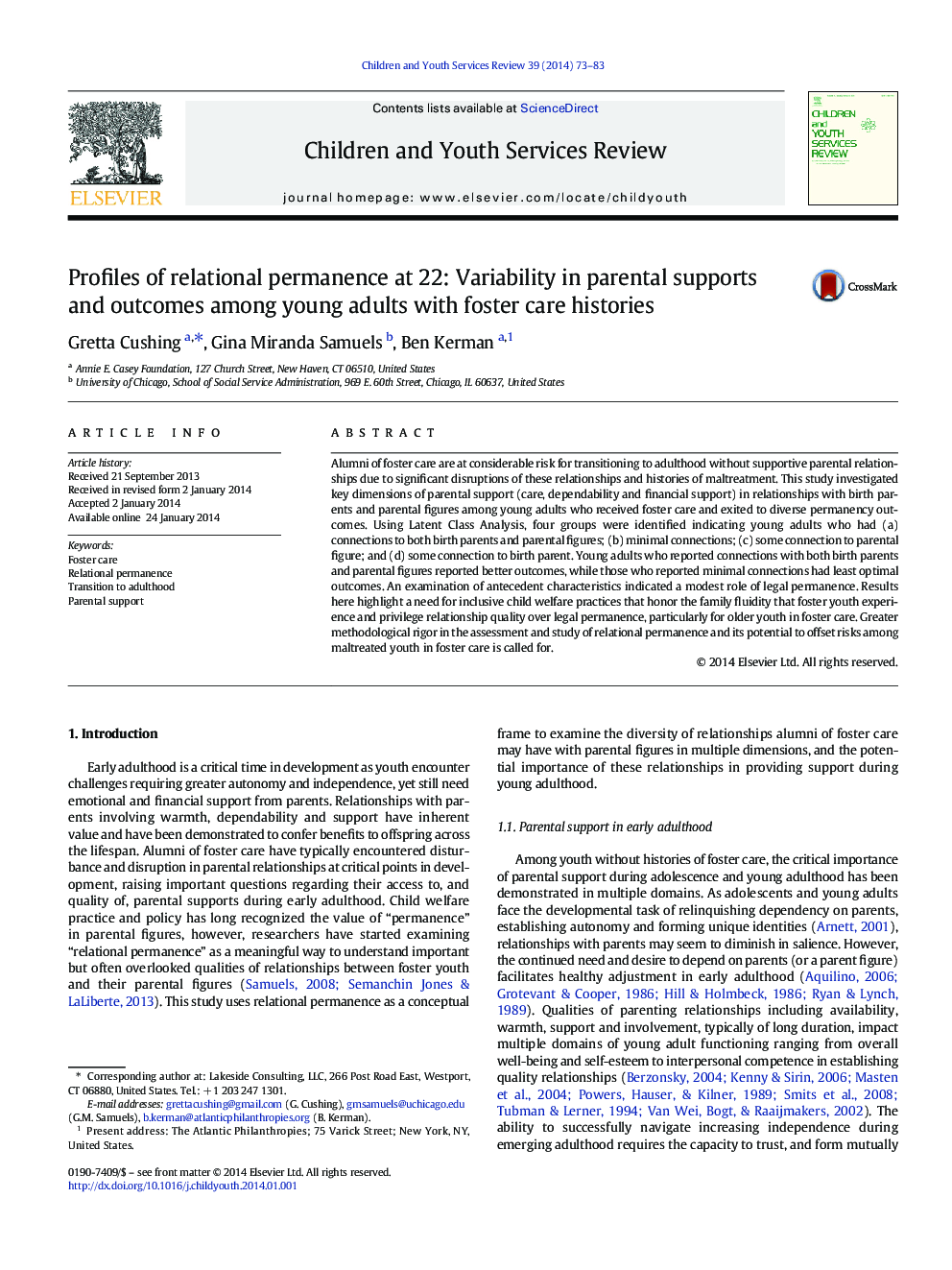| Article ID | Journal | Published Year | Pages | File Type |
|---|---|---|---|---|
| 6834394 | Children and Youth Services Review | 2014 | 11 Pages |
Abstract
Alumni of foster care are at considerable risk for transitioning to adulthood without supportive parental relationships due to significant disruptions of these relationships and histories of maltreatment. This study investigated key dimensions of parental support (care, dependability and financial support) in relationships with birth parents and parental figures among young adults who received foster care and exited to diverse permanency outcomes. Using Latent Class Analysis, four groups were identified indicating young adults who had (a) connections to both birth parents and parental figures; (b) minimal connections; (c) some connection to parental figure; and (d) some connection to birth parent. Young adults who reported connections with both birth parents and parental figures reported better outcomes, while those who reported minimal connections had least optimal outcomes. An examination of antecedent characteristics indicated a modest role of legal permanence. Results here highlight a need for inclusive child welfare practices that honor the family fluidity that foster youth experience and privilege relationship quality over legal permanence, particularly for older youth in foster care. Greater methodological rigor in the assessment and study of relational permanence and its potential to offset risks among maltreated youth in foster care is called for.
Related Topics
Health Sciences
Medicine and Dentistry
Perinatology, Pediatrics and Child Health
Authors
Gretta Cushing, Gina Miranda Samuels, Ben Kerman,
